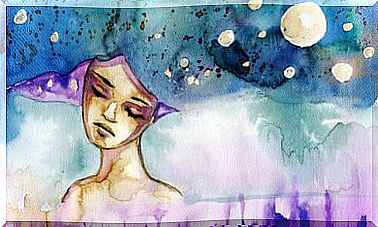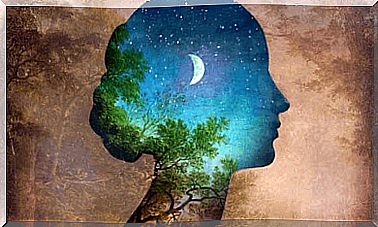Learn To Deal With Uncertainty To Have A Good Life

The only thing we know for sure is that nothing, or very little, in life is safe. Nevertheless, Western societies bombard us with the idea that it is possible to have everything under control. And not only that, but you should quickly and efficiently find solutions to everything. Our society does not encourage something vital for adaptation: learning to deal with uncertainty.
Dealing with “uncertainty” is exactly what it sounds like: the ability to deal with a lack of security and immediate solutions. You can try to fix everything and find a solution every time, but at the end of the day it is impossible.
Sometimes answers and solutions only come with time. Others are completely impossible to find. Mankind does not know everything. What we do not know actually goes far beyond what we actually know.
When you present it in that way, most people probably agree that it is true. In practice, however, something else happens. Some people are basically incapable of dealing with uncertainty. It makes them anxious and irritable. They can not handle not walking on solid ground.

People who cannot handle uncertainty have the need to experience something we call cognitive closure. This concept is also known as “the last word”. There are people who demand that things be clearly defined. Yes or no; black or white.
People with this trait experience great stress when there are no definitive answers. Cognitive closure suggests safety. “Do you love me… or not?” They want the answer to be an absolute yes or an absolute no. It is difficult for them to understand that the most realistic answer is “Both yes and no…”
Ambiguity and paradoxes are intolerable for people who can not handle uncertainty. It does not see them as real things that have their place in the world, but as a lie, a deception, a way to hide the truth. The bad news for these people is that we can say (almost certainly) that almost all people are ambiguous.
When people can not handle uncertainty, it is probably because they simplify reality. They have a limited hypothesis about what happens. It is either one or the other.
People who see the world in this way have a hard time making guesses. It is difficult for them to create new hypotheses about what they see. In the same way, it is difficult for them to accept that something may be impossible to understand, at least for the moment.
For example, they may not understand that the same event can be the result of many different circumstances. If a person is not interested in reading, it is not necessarily because he or she is careless or uneducated. There can be thousands of reasons.
Not being able to deal with uncertainty therefore usually indicates a lack of empathy. People with this deficiency only see the world in their own terms. This makes it very difficult for them to accept differences, because they believe that there is a consensus on what is “right”.
They also believe that one must agree on everything equally for families, relationships and communities to function.
A tolerance for uncertainty manifests itself as the ability to accept that there is no right answer. People who can handle uncertainty do not become anxious or worried when they do not get an immediate answer.
They just accept it and move forward with the information they have. They focus on solving what they understand. If new elements come into the picture, they are aware and attentive, and use these to figure out what is happening.
Another thing that people who can handle uncertainty do is to thoroughly analyze the facts. They do not stay on a superficial level; they try to go deeper. As a result, they discover things that are more complex than they may seem. This makes it easier to understand how difficult it is to have definitive answers.

Interestingly, people with lower tolerance for uncertainty are more confident with their assessments and decisions when they decide to take them. In contrast, people with higher tolerance take longer to make decisions. They also doubt themselves before they act, but they are still better at dealing with conflict and differences, and this is evident in their relationships.








